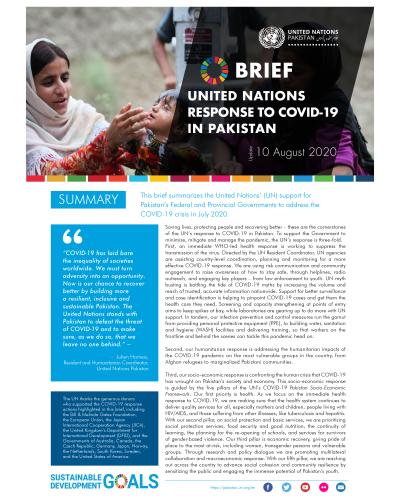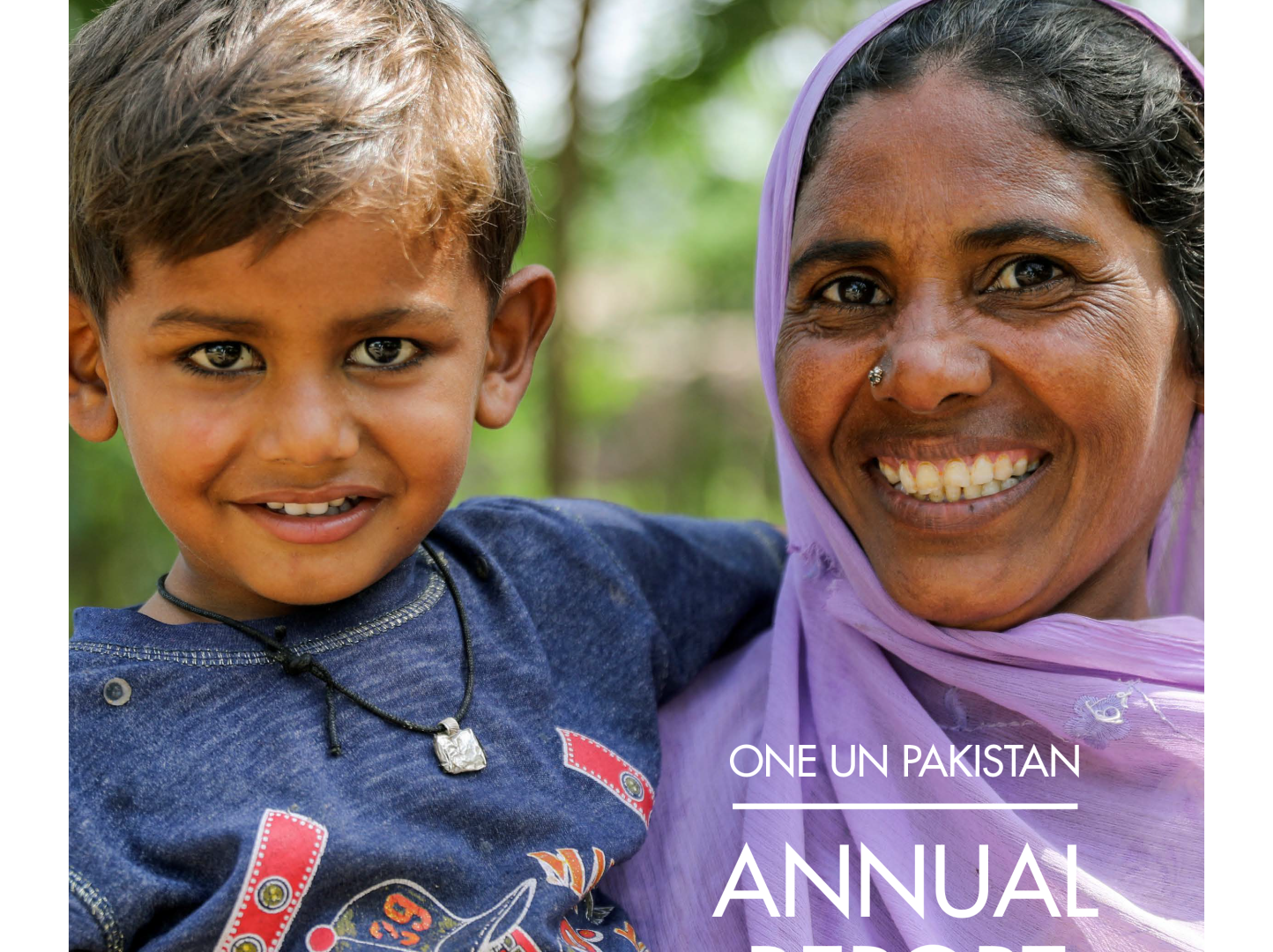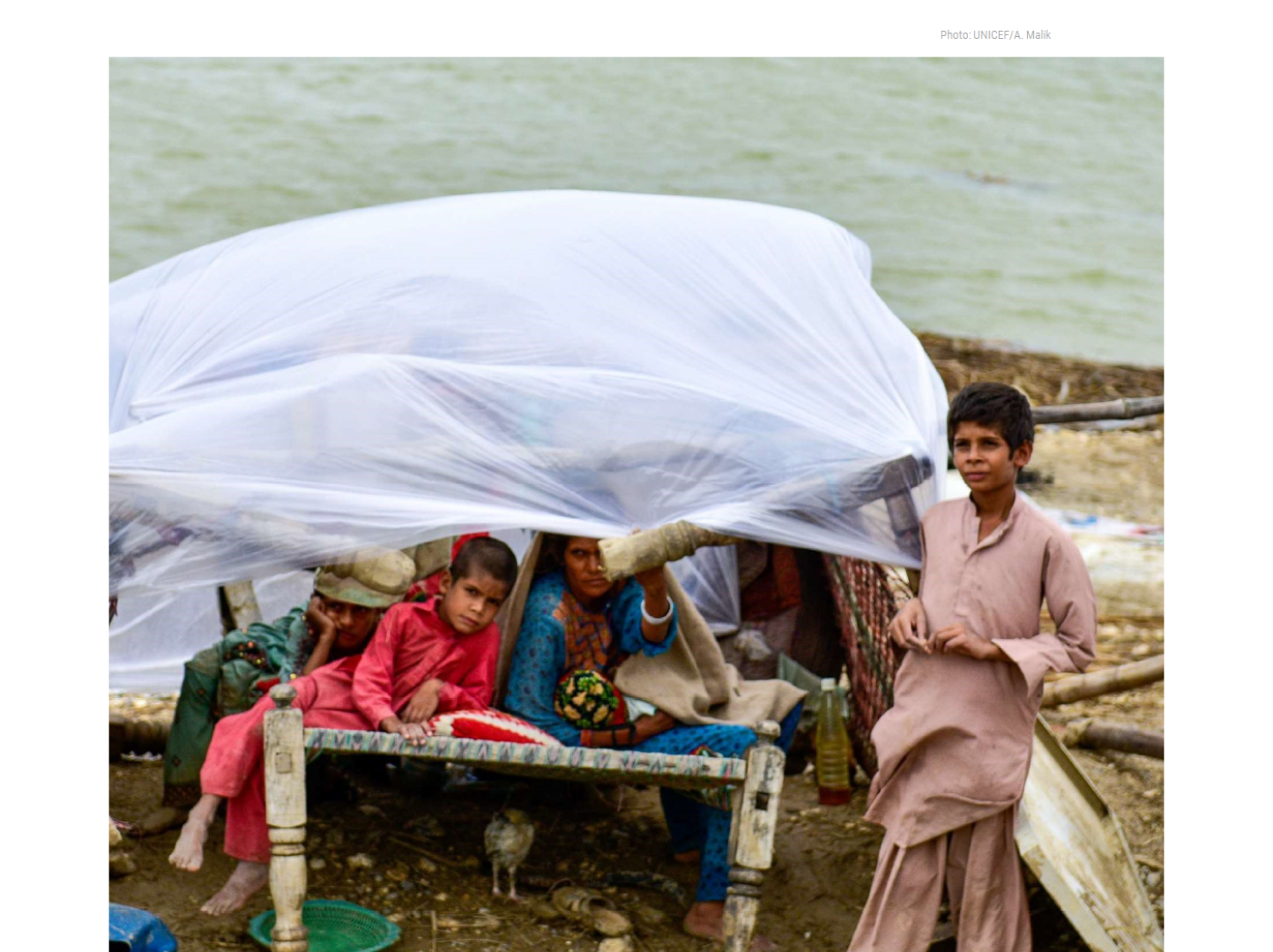Brief: United Nations response to Covid-19 in Pakistan, August 2020

Saving lives, protecting people and recovering better – these are the cornerstones of the UN’s response to COVID-19 in Pakistan. To support the Government to minimize, mitigate and manage the pandemic, the UN’s response is three-fold. First, an immediate WHO-led health response is working to suppress the transmission of the virus. Directed by the UN Resident Coordinator, UN agencies are assisting country-level coordination, planning and monitoring for a more effective COVID-19 response. We are using risk communication and community engagement to raise awareness of how to stay safe, through helplines, radio outreach, and engaging key players – from law enforcement to youth. UN myth busting is battling the tide of COVID-19 myths by increasing the volume and reach of trusted, accurate information nationwide. Support for better surveillance and case identification is helping to pinpoint COVID-19 cases and get them the health care they need. Screening and capacity strengthening at points of entry aims to keep spikes at bay, while laboratories are gearing up to do more with UN support. In tandem, our infection prevention and control measures run the gamut from providing personal protective equipment (PPE), to building water, sanitation and hygiene (WASH) facilities and delivering training, so that workers on the frontline and behind the scenes can tackle this pandemic head on.
Second, our humanitarian response is addressing the humanitarian impacts of the COVID-19 pandemic on the most vulnerable groups in the country, from Afghan refugees to marginalized Pakistani communities.
Third, our socio-economic response is confronting the human crisis that COVID-19 has wrought on Pakistan’s society and economy. This socio-economic response is guided by the five pillars of the UN’s COVID-19 Pakistan Socio-Economic Framework. Our first priority is health. As we focus on the immediate health response to COVID-19, we are making sure that the health system continues to deliver quality services for all, especially mothers and children, people living with HIV/AIDS, and those suffering from other illnesses, like tuberculosis and hepatitis. With our second pillar, on social protection and basic services, we are prioritizing social protection services, food security and good nutrition, the continuity of learning, the planning for the re-opening of schools, and services for survivors of gender-based violence. Our third pillar is economic recovery, giving pride of place to the most at-risk, including women, transgender persons and vulnerable groups. Through research and policy dialogue we are promoting multilateral collaboration and macroeconomic response. With our fifth pillar, we are reaching out across the country to advance social cohesion and community resilience by sensitizing the public and engaging the immense potential of Pakistan’s youth.












![پائىدار ترقىاتى تعاون مىں تعاون کے لئے اقوامِ متحدہ کا فرىم ورک [UNSDCF] 2023 تا 2027](/sites/default/files/styles/big_carousel_featured_image/public/2023-05/UNSDCF-Abridged-Urdu-1.jpg?h=7230c591&itok=SIgR7ej8)


